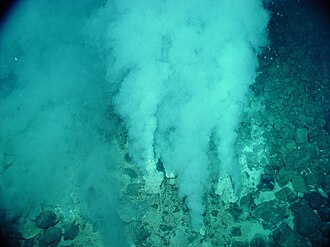I asked Paddoboy, "Why must the true answer to life's origins be "scientific"?"
Write4U pops in with:
Because it involves only chemical transmutation, not any extraneous ID or other exterior interference .
You write that like that's something that you know for a fact. So how do you know it? How would you justify that belief? You weren't back there at the origin of life watching what happened.
It seems to me that you and Paddoboy are confusing methodological and metaphysical naturalism.
The former is an initial heuristic premise in science.
A heuristic is a method for seeking knowledge. An inquiry strategy. In the natural sciences, the inquiry strategy is to restrict one's self to asking questions about the natural world, and then to seek natural answers for those questions. That's methodological naturalism and it's one of the things that's kind of definitive of what natural science is.
But notice that science's naturalism was baked in at the beginning as an initial methodological premise. It isn't knowledge about the ultimate nature of reality. It's how science has decided to proceed. It's an inquiry strategy for attacking questions.
You and Paddoboy seem to want to argue that since natural science (by definition) seeks only natural answers and accepts only natural answers as scientific, that natural answers are the only answers that can possibly be true. You imagine that science somehow guarantees that reality itself must be naturalistic.
What the two of you seem to me to be doing is slippy-sliding from methodological naturalism (an inquiry strategy) to metaphysical naturalism (a belief about the true nature of reality itself), hoping that nobody will notice. And perhaps without noticing yourselves. And metaphysical naturalism is a belief that I don't think that either of you can justify.
Metaphysical naturalism is the belief that reality can only consist of those things that appear in natural science's accounts of natural events. Since natural science set out at the beginning to seek natural causes (insert smoke and mirrors here) we conclude that natural causes are all that can possibly exist. A heuristic has suddenly turned itself into an ontology.
It seems to me that many atheists are fond of making that particular move. It's one of the things that distinguish them from agnostics. Agnostics are much more willing than this sort of atheist to admit that they don't have answers to all of the big metaphysical questions and they doubt that anyone does.
Hence my question to Paddoboy: "Why must the true answer to life's origins be scientific?"



:max_bytes(150000):strip_icc():format(webp)/Glycolysis-58a468ce3df78c47584cd4d3.jpg)

